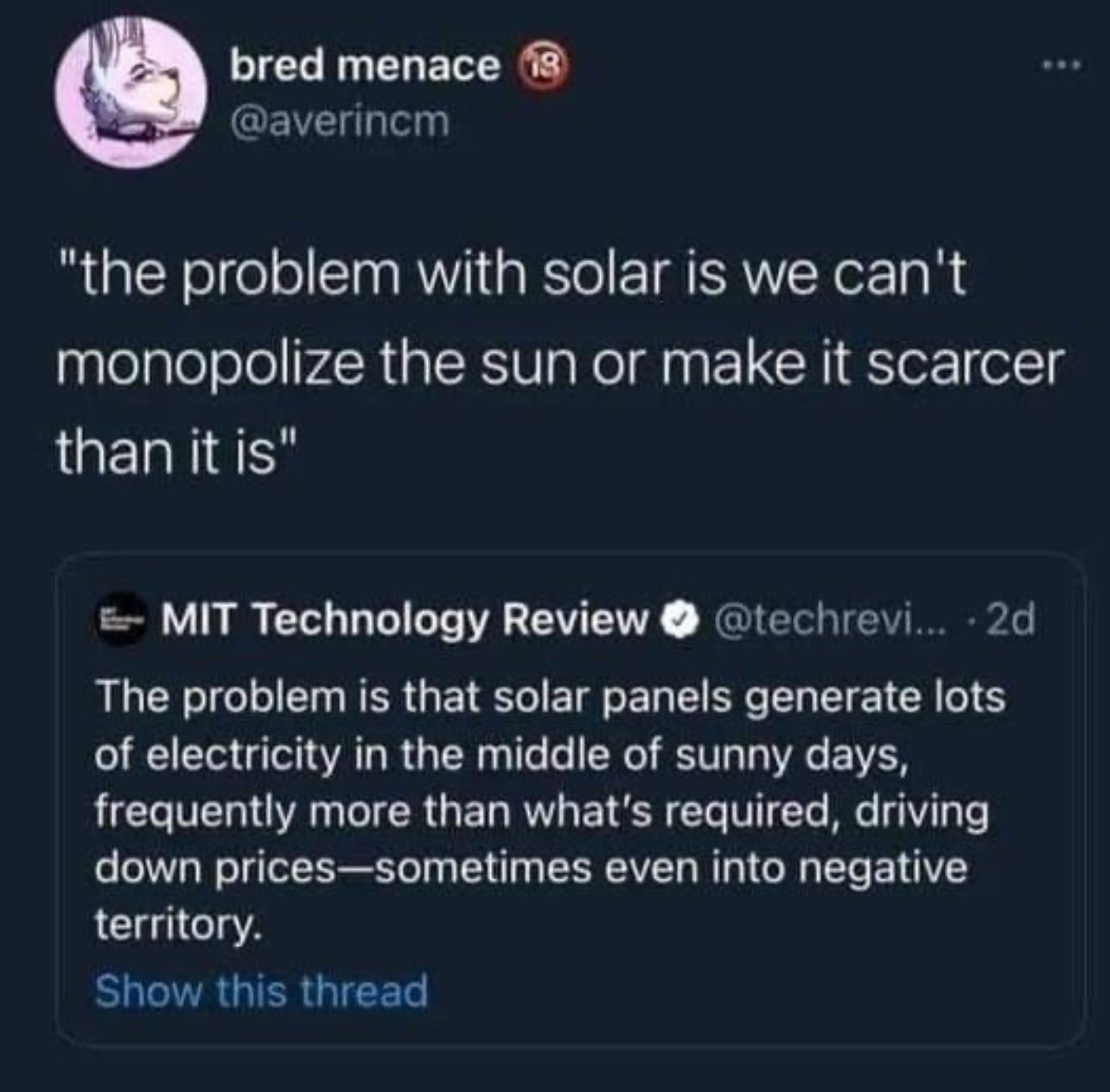this post was submitted on 02 Oct 2024
1689 points (95.6% liked)
Microblog Memes
5832 readers
1838 users here now
A place to share screenshots of Microblog posts, whether from Mastodon, tumblr, ~~Twitter~~ X, KBin, Threads or elsewhere.
Created as an evolution of White People Twitter and other tweet-capture subreddits.
Rules:
- Please put at least one word relevant to the post in the post title.
- Be nice.
- No advertising, brand promotion or guerilla marketing.
- Posters are encouraged to link to the toot or tweet etc in the description of posts.
Related communities:
founded 1 year ago
MODERATORS
you are viewing a single comment's thread
view the rest of the comments
view the rest of the comments

The grid needs to balance input and output. You can't just "throw away" power.
It's a real problem
not the "electric companies are losing money" part, but the "we need to keep the grid balanced" part.
That can indeed be a problem.
It is however not what the MIT guys wrote as being the problem: they quite literally said the problem with too much solar generation at peak times is that it drives prices down.
Also, curiously, the prices being driven down actually helps with the real technical problem that you point out: those consumers who can move their consumption times will tend to move them to those hours when the prices are lowest thus helping solve it. Same thing goes for investors: the more the price is pushed down at peak solar production times, the more appealing it is to invest in things like storage or even solutions with lower efficiency (such as green hydrogen or electricity transportation cables to markets less well served by solar).
The low prices aren't the problem from a technical point of view, quite the contrary: they're an incentive to invest in solutions (which is going to employ a lot of techies, so supposedly MIT would be all in favor of it)